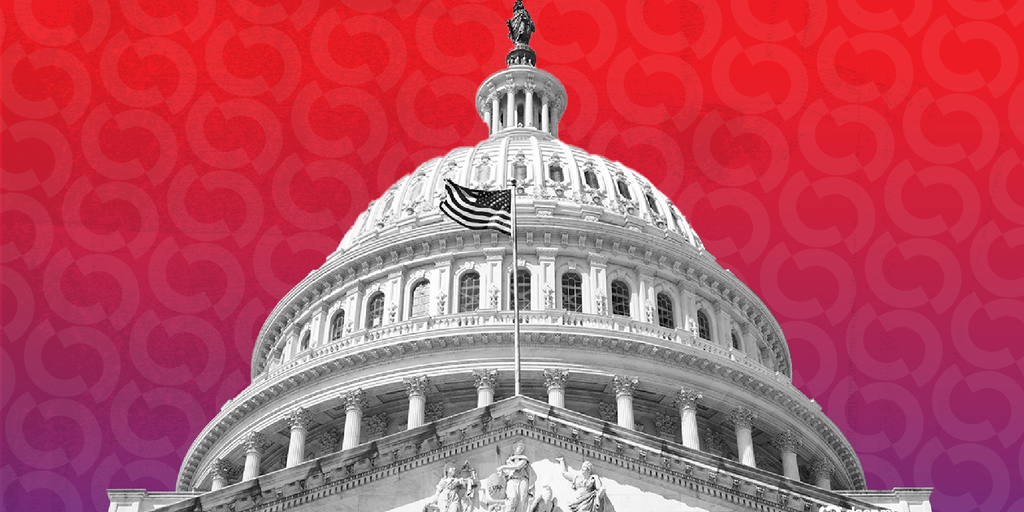A dozen pro-crypto Senate Democrats issued a list of conditions under which they would support a pending digital assets market structure bill, citing President Donald Trump’s resistance to keeping Democratic commissioners at federal agencies like the SEC and CFTC as a key sticking point.
The conditions were outlined in a letter published Tuesday morning by Sen. Ruben Gallego (D-AZ), the top Democrat on the Senate Banking Committee’s Subcommittee on Digital Assets.
The letter, which underscored the willingness of the group to pass crypto legislation so long as it was meaningfully bipartisan, was signed by 10 Senate Democrats who voted for the stablecoin-focused GENIUS Act earlier this year. They include Mark Warner (D-VA), Kirsten Gillibrand (D-NY), Cory Booker (D-NJ) and Adam Schiff (D-CA). The letter was also signed by Sen. Lisa Blunt Rochester (D-DE), who voted against the GENIUS Act.
That voting bloc of ostensibly pro-crypto Democrats was key to passing the GENIUS Act this summer, and will likely be crucial this time around as well, given at least seven Democrats would need to join every Senate Republican in order to pass the bill.
While the letter requests numerous additions to the Senate crypto market structure bill, which would set the rules for the vast majority of the crypto economy, its strongest language focuses on the current composition of the SEC and CFTC, the two regulators that would oversee a federal crypto regulatory framework. Both agencies are by law required to feature five commissioners, and no more than three can come from the same political party.
Historically, presidents have appointed commissioners from their rival party to fill those gaps. But President Trump has so far resisted such moves, even though only one term-expired Democrat remains on the SEC, and no Democrats currently serve on the CFTC, which is currently operated by a sole Republican acting chair, Caroline Pham.
Trump has also, in his second term, taken the extraordinary move of outright firing Democratic commissioners from other independent federal agencies, including two Democrats from the FTC. On Monday, the Supreme Court moved to uphold those firings, at least for now.
That context is foremost for pro-crypto Senate Democrats.
“President Trump has fired countless Democratic commissioners from independent regulatory agencies and shown little interest in nominating new officials,” the letter reads.
“For digital assets regulation to succeed, it is essential that regulators have the funding and staff that they need,” it continued. “These agencies also require Democratic voices, as Congress intended: only a bipartisan regulatory process will produce durable, balanced rules that provide long-term stability and legitimacy for digital asset markets.”
When asked by Decrypt whether getting Democrats successfully appointed to the SEC and CFTC would become a red line during negotiations over the crypto bill, a spokesperson for Gallego referred back to today’s letter and declined to comment further.
One D.C. insider told Decrypt they found the Democrats’ request reasonable given the current political environment.
“Democrats want to rightfully feel like their voice and concerns have a proxy in the room during any rulemaking at these agencies,” the insider said, “and they want to know that, if confirmed, those commissioners won’t be summarily fired.”
The political composition of the CFTC and the SEC in coming years may thus take precedence over Democrats’ policy specific desires regarding the crypto bill.
Those, listed in Tuesday’s letter, include:
- assurances that new crypto rules will not weaken regulation of traditional securities;
- granting the CFTC additional powers to regulate spot crypto commodities;
- preventing the use of digital assets for traditional capital raises as a means to evade existing regulations;
- directing regulators to create an “appropriate and effective” oversight framework for DeFi;
- and preserving existing consumer protection authorities, including the Republican-targeted Consumer Financial Protection Bureau.
But partisan political considerations may not be the only friction point poised to define the fight over the crypto bill in the coming months.
Another crypto policy expert told Decrypt many of the Democrats‘ requests today appear closely aligned with desires of the traditional banking and finance lobbies, which have vocally protested certain elements of crypto legislation.
The GENIUS Act as passed, for example, has allowed companies like Coinbase and PayPal to continue to offer lucrative yield to holders of stablecoins the companies helped develop, because the companies do not technically issue the tokens themselves.
Today’s letter requests that the Senate’s market structure bill “preserve the intent” of the GENIUS Act by clarifying that stablecoin issuers cannot offer yield indirectly or through affiliates.
Today’s letter also includes numerous requests that appear designed to ensure that crypto companies don’t enjoy a regulatory advantage against traditional finance players on Wall Street, the policy expert said—requests likely backed by established titans.
“Wall Street is going to put up a huge fight,” the expert said.
Republicans on the Senate Banking Committee released a new draft of their proposed crypto market structure bill on Friday, and have expressed a desire to mark up the legislation this month before voting it out of committee—a very ambitious timeline.
On Tuesday, pro-crypto Senate Democrats appeared to warn that moving the bill along too quickly, without their support, could risk losing their votes.
“Achieving a strong, bipartisan outcome will require time and cannot be rushed,” the senators said in a joint statement. “We look forward to working on this with our Republican colleagues.”
Your Email









